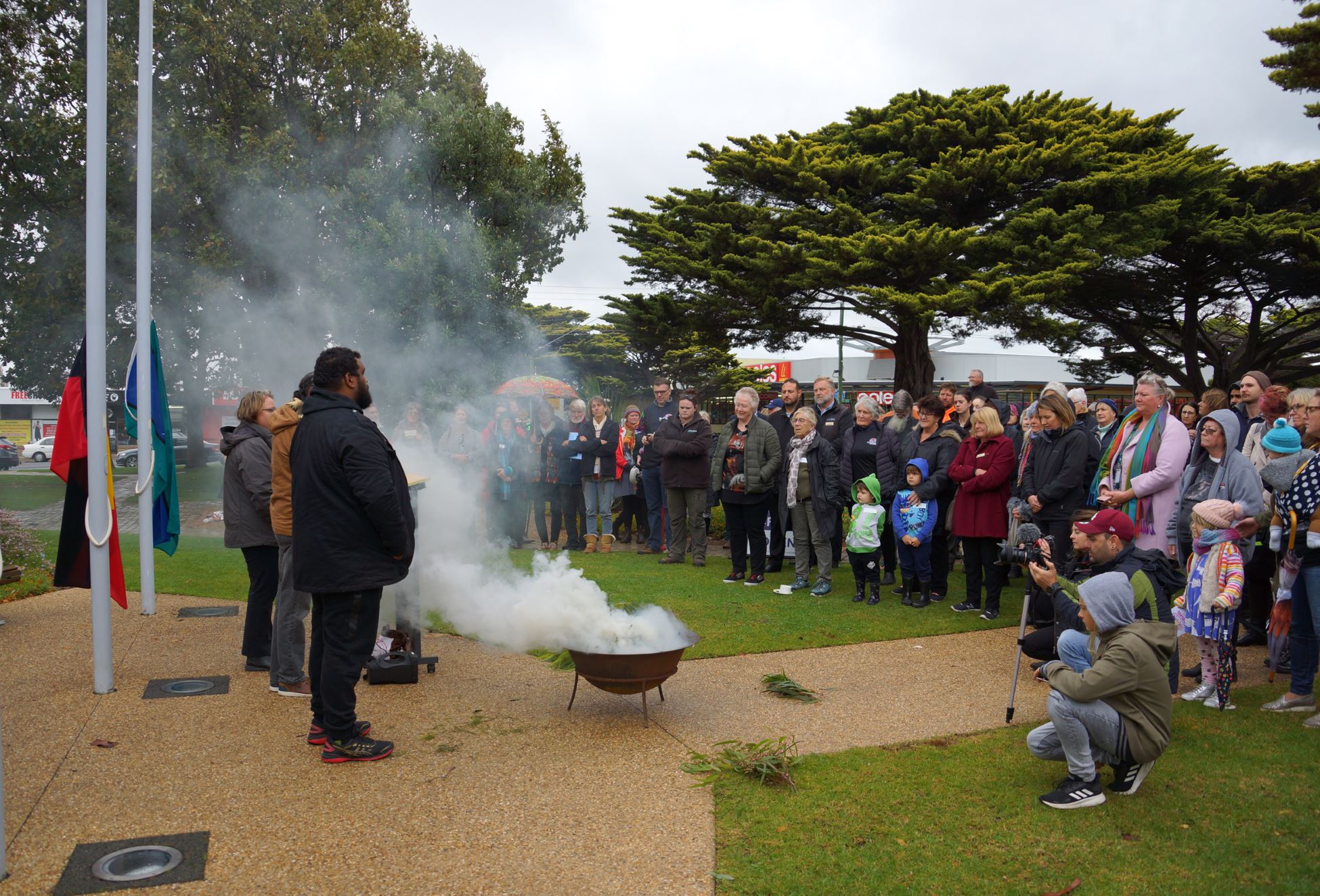Reconciliation in the Media – NRW: Be Brave. Make Change.

Braving the challenges of repatriation
The remains of the last of 13 Wiradjuri ancestors taken during scientific missions in the 19th and 20th centuries have been returned to Wiradjuri Country in Wellington.
The last four ancestors were previously held at the Australian Museum. The repatriation of the remains happens in the institution’s efforts to promote healing and reconciliation.
The remains are among the earliest modern humans discovered anywhere in the world.
Dubbo Regional Council’s Aboriginal Liaison Officer Kerry Anne Stanley explained that the returning of ancestral remains was incredibly culturally significant:
“Today is special because, from a cultural lens, Aboriginal people belong to the Country, they belong to the land on which they were born. And in order to feel solely complete and whole as an Aboriginal person, you need to be bought back to Country to be laid to rest.” she said.
Aboriginal students from Wellington Public School said it was a “privilege” to be invited to the ceremony on Friday 6 May, to watch their ancestors be laid to rest.
The bravery to realise potential
Palawa person Mark Cleaver is a 35-year-old, studying a Master of Human Resource Management at Melbourne’s RMIT.
Their experience is one which often entails being sought for advice on behalf of First Nations, disabled or LGBTQIA+ people, often being “used for my lived experience,” Cleaver said.
They put their bravery and inspiration down to their late mother’s experience of hardship, trauma and frustration as an Indigenous woman.
Cleaver continues to find success through adversity, advocating bravery in the pluralised-identity space.
Braving Change: Community combats food insecurity
In February 2022, the Garlbagu, Ngarluma-Yindjibarndi Foundation’s social enterprise arm, reopened the store as non-profit grocery store in Roebourne WA, Country of the Yindjibarndi people.
The non-profit supermarket model is one which could be adopted by other small North-West towns, with limited access to groceries.
Change-making within Indigenous non-for-profits and social enterprises often commit to revitalising and sustaining Indigenous language, culture, art and community. ‘Be brave. Make change’ is well and truly embodied by this remote community.
Brave for Change: Schools Reconciliation Challenge
The NSW Schools Reconciliation Challenge is an annual writing and art program for young people across NSW and the ACT.
This year, it celebrate 13 years of the Schools Reconciliation Challenge, and hopes to challenge its students through its theme From River to Sea: Our Island Home.
The NSW State Reconciliation Council, and other state and territory councils like it, house an important role in progressing reconciliation at the local level.
Need a yarn? First Indigenous-led Helpline launches
The needs of community have been listened to, in a launch of the very first Indigenous owned, operated and led Nation-wide helpline.
In its unique Co-design, the call-centre is exclusively run by Indigenous staff. 13YARN will offer clinical and cultural support around the clock to Aboriginal and Torres Strait Islander people.
It’s an initiative that’s funded by the Australian Government Department of Health.
With its strong emphasis on cultural-safety modelling and an initiative that employs a conversational approach, it is hoped that the initiative will support First Nations people in times of need.


